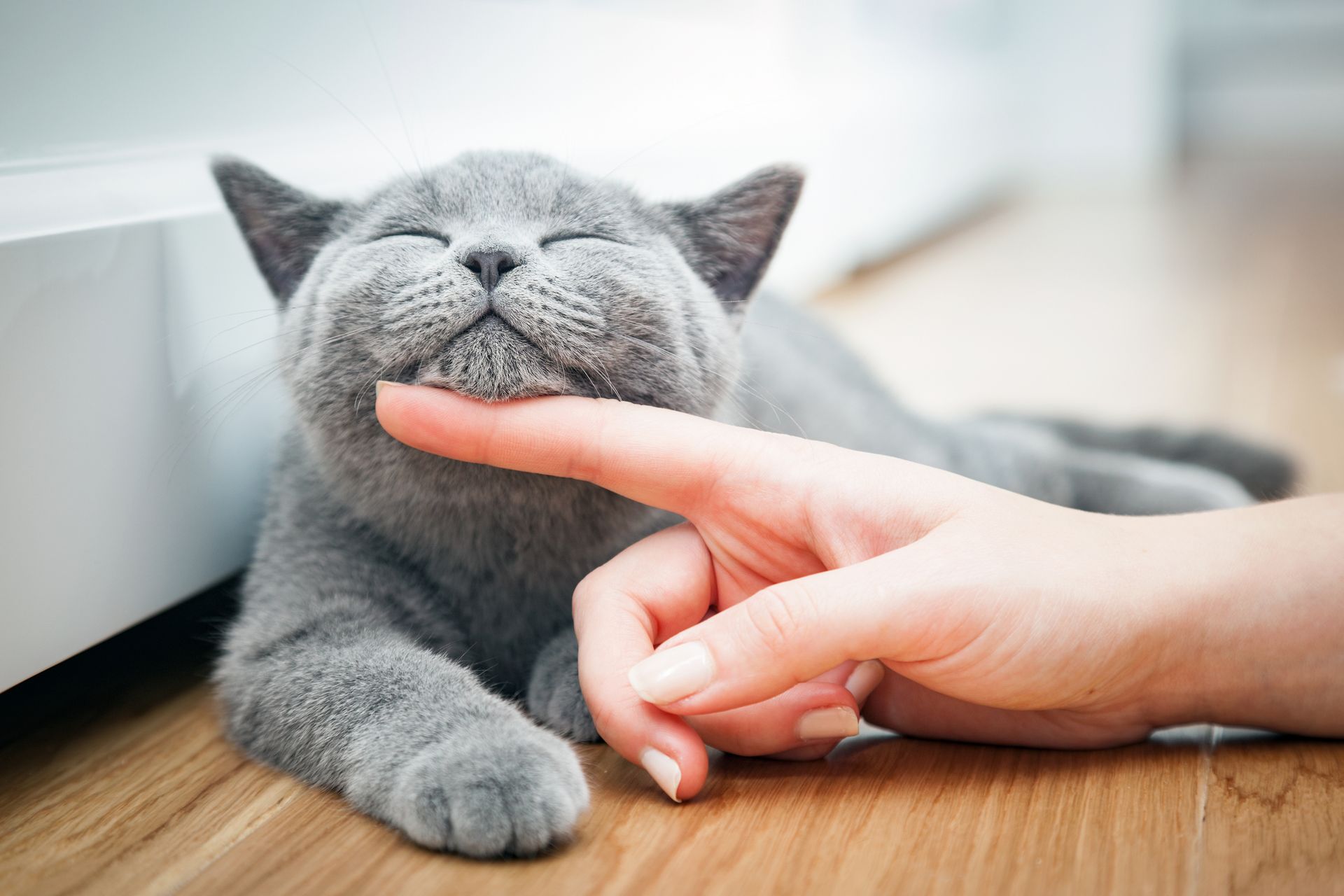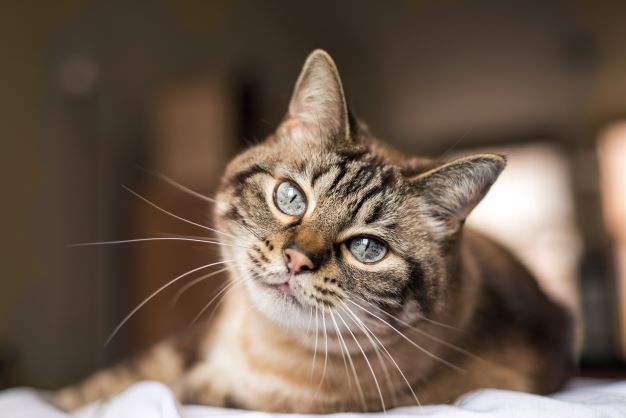Pet Dental Care Near Me
Whether you’ve searched ‘pet dental care near me’ or seen us around and looked for us directly, we’d like to welcome you to our website and vet practice! If you are looking for a vet that offers dental care for your beloved animals, then choose Woodward Veterinary Practice. At Woodward, we propose that your pet's dental hygiene is just as important as any other routine and preventative treatment. Just like humans, dogs can develop a build-up of tartar, leading to tooth decay and gum disease. Prevention is always better than a cure, be sure to register your pet at Woodward or book an appointment with us if your pet is already registered with us.
Brushing your dog’s teeth once or twice a day is highly advised and recommended for good oral hygiene. Our products involve liquids to add to pets water to help reduce plaque build-up and reduce bad breath (halitosis), alongside veterinary dental diets. Here at Woodward Veterinary Practice, our team are always happy to assist you with answering any questions you may have, as well as advising you on the recommended products or diets for your pets.
Emergency Pet Dental Care
At Woodward, we understand that most pet owners occasionally face a dental emergency. Breaking a tooth can cause an animal severe discomfort and you can't choose when these injuries take place. Luckily we have the right equipment and tools for emergency dental work on site. If your pet is in need of emergency dental care out of hours, contact us on 01530 412 035. Our emergency dental work is done to an extremely high clinical standard, and the following is included (as applicable):
- IV fluids (if needed), enhancing anaesthetic safety and speeding recovery
- Teeth are extracted surgically (where appropriate) so the gum is stitched closed.
- Dental x-rays are carried out before teeth are extracted.
- Dental nerve blocks to provide excellent pain relief for pets having extractions

Symptoms of dental disease
Animals can be very good at hiding signs of oral pain and dental disease. Some animals with severe dental disease, including root exposure, severe gingivitis (inflammation of the gums), and tooth root infections, will continue to eat, showing only subtle signs that something is wrong. This can result in your pet having multiple teeth extracted at one time as opposed to one tooth extraction. The buildup of plaque and tarter will not be removed by teeth brushing alone if this is already present, the best action for this is a scale and polish to remove this, followed by tooth brushing to prevent the buildup occurring again. General anaesthesia is required for all dental procedures, however, having a routine scale and polish carried out to prevent dental disease from progressing is a hugely reduced anaesthetic time compared to multiple extractions being carried out.
Signs of dental disease
- bad breath (halitosis)
- tartar build-up on teeth (visible to you)
- red or inflamed gums (gingivitis)
- discoloured teeth
- drooling
- loose teeth
- bleeding in the mouth
- slowness or reluctance to eat
- chewing on one side of the mouth
- dropping food from the mouth when eating
- swelling around the mouth (from potential tooth root abscesses).
How dental disease is prevented?
The best way to maintain healthy teeth is to brush your pets teeth daily. This is easiest to start when your pet is younger but can be introduced at any age. The Woodward Veterinary Practice team would be happy to help with advice on introducing this to your pet. It can also be beneficial to have a scale and polish performed regularly to clean the teeth thoroughly. This is similar to the treatment we would receive from a dental hygienist. These are done under a short general anaesthetic as animals won’t sit in one position for a prolonged period and we must ensure their safety and the team’s safety when in the vicinity of sharp teeth!

Why does dental disease occur?
Food and saliva that are left behind on the teeth will form plaque on the tooth. Plaque is soft and can be removed by brushing or using alternative dental products. If not removed, the plaque will harden forming tartar, which is difficult to remove without dentistry intervention. If tartar is not removed (normally via the scale and polish procedure) then bacteria will spread below the gum line, causing red sore gums. This is called gingivitis and periodontitis, which in turn can lead to loose teeth, infection of the tooth root and jawbone infections.
Pet Dental Care FAQs
What is dental disease?
Dental disease can vary from mild to severe. In the early stages of dental disease plaque and tartar begin to build on the surface of the tooth. As plaque and tartar continue to build the gum around the tooth can become inflames (gingivitis). Left untreated, the inflamed gum will begin to recede, exposing the root of the tooth. Ultimately the tooth may be lost. Dental disease can occur following trauma where a tooth is fractures
What is scale and polish procedure?
As with people, a scale and polish involve an ultrasonic scaler held gently against the teeth. The scaler will gently vibrate against the teeth to remove tartar. A high-speed polisher is then used to ensure your pet’s teeth are left smooth and clean. (All patients who require other dental treatment will also have their teeth scaled and polished).
How often should I brush my pet’s teeth?
Ideally, you should brush your pet’s teeth daily, but even brushing a few times a week can make a big difference. Use a pet-safe toothpaste and a soft-bristled toothbrush designed for pets. Regular brushing helps prevent plaque buildup and keeps your pet’s mouth clean.
Can dental problems affect my pet’s overall health?
Yes, untreated dental problems can have a serious impact on your pet’s health. Bacteria from the mouth can enter the bloodstream and affect vital organs like the heart, liver, and kidneys. Regular dental care helps prevent these complications and keeps your pet healthy.
Does pet insurance cover dental care?
Some pet insurance plans cover dental care, while others may not. Coverage can vary depending on the plan and the specific procedures needed (routine cleanings vs. treatment for dental disease). It’s best to review your insurance policy or consult with your provider for details on what is covered.
How to Clean Your Dog’s Teeth
If your dog isn’t used to having their teeth brushed, you’ll need to gradually get them accustomed to the process. Follow these steps to ease your dog into it:
- Familiarise your dog with the toothpaste: Let your dog sniff and lick the pet-safe toothpaste so they can get used to the taste.
- Handle your dog’s mouth: Gently lift your dog’s lips and touch their teeth and gums with your fingers to help them get comfortable with the sensation.
- Take it slow: Start with short sessions, even if it’s just brushing one or two teeth at first, and gradually increase the time as your dog gets more comfortable.
Find a comfortable spot where both you and your dog are relaxed. You can either kneel beside your dog or sit behind them, depending on what works best for you. Some dogs may prefer standing or sitting on your lap.
- Apply toothpaste: Put a small amount of dog-safe toothpaste on the toothbrush or finger brush.
- Lift your dog’s lips: Gently lift your dog’s lips to expose their teeth.
- Brush in circular motions: Focus on the outer surfaces of your dog’s teeth, particularly the back molars where plaque and tartar tend to build up. Use small, circular motions to gently clean the teeth and along the gum line. If your dog is nervous, start with just a few teeth and work your way up to more as they become more comfortable.
Please see our linked pet dental pages:




